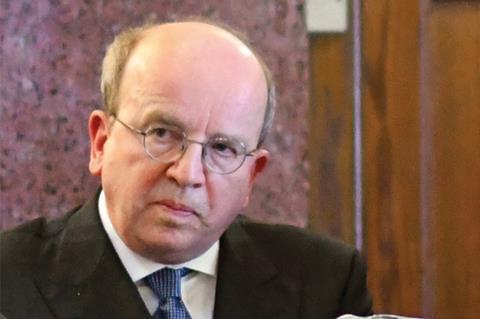The judgment in Nigeria v P&ID [2023] EWHC 2638 (Comm) has attracted considerable attention with respect to the findings by Mr Justice Knowles (pictured) as to the conduct, during the arbitration, of those retained to advise P&ID. He concluded that there had been a serious irregularity affecting both the arbitration proceedings and the award as the result of the ‘most severe abuses of the arbitral process by P&ID’. The abuses included the presentation of evidence which Knowles J found to have been knowingly falsified, as well as the persistent obtaining and use by P&ID of privileged material, including advice provided to Nigeria by its lawyers.

For the conduct of arbitrations involving states more generally, however, Knowles J’s judgment poses challenges for both arbitrators and practitioners in the future. He called for ‘the facts and circumstances of this case [to] provoke debate and reflection among the arbitration community, and also among state users of arbitration, and among other courts with responsibility to supervise or oversee arbitration’. The facts and circumstances of this case, ‘which are remarkable but very real’, may give rise to a risk that the arbitration process, ‘which is of outstanding importance and value in the world’, may need further attention, where the value involved is so large and where a state is involved.

The starting point or initial ‘red flag’ in this case was the relative lack of detail in the subject contract (the GSPA), and the fact that it exposed the state to high risks of high-value claims where the state was in breach. While a tribunal cannot, of course, rewrite the parties’ bargain, the nature of that bargain was an important contextual consideration when analysing the claims of breach.
Implicitly, Knowles J was concerned that the tribunal in the arbitration had not taken more steps to interrogate the Nigerian government’s conduct of the case, and to ensure that the state’s case was presented as fully as possible, given the sums of public money at issue.
This issue raises a particular challenge for a tribunal confronted with an apparent inequality of arms as between the parties – a situation which can arise in cases between commercial parties as much as in cases involving states. Where a party is unrepresented or non-participating, a tribunal may seek to put to the participating party the sorts of questions which it may anticipate would have been raised by the other party.
However, where the parties are both represented, the tribunal needs to tread carefully in order not to attract criticism for, effectively, augmenting an otherwise-inadequate or incomplete response to the case on behalf of the party which has failed to make its case as fully or effectively as it might.
A further aspect of the concern expressed by the judge related to the tribunal’s approach to the assessment of damages. Again, given the value of the claim being made against Nigeria, implicitly the judge seems to consider that the tribunal should have done more to ensure that the issues on quantum were fully presented on Nigeria’s behalf. The tribunal was not aware of some significant issues affecting the conduct of Nigeria’s case for reasons of cost. But there were also changes in government personnel which made the task of those advising the government more difficult.
Knowles J concluded that the ‘tribunal did what it did with what it had’ but that essentially its acceptance at face value of the GSPA rendered the arbitration ‘a shell that got nowhere near the truth’. A more rigorous disclosure process may have helped to uncover more of the facts which emerged in the English proceedings. In the arbitration itself, the procedure incorporated no document production phase, and neither was the question of corruption in issue before the tribunal. However, in other cases where such matters are in issue, it is implicit from the judgment that a wider ambit of production may well be appropriate compared to the norm in arbitration cases.
We may expect future practice to develop following this judgment, for cases involving states and high-value claims. But it is worth noting that efforts are and have been under way within the arbitration community for some time to recognise and address these matters. The ICC Commission on Arbitration and ADR has produced a report on the conduct of arbitration under ICC rules in cases involving states and state entities (last updated in 2017). This demonstrates measures which can be taken to ensure that the process is well-suited to a state party, including by way of the scrutiny of the draft Award by the ICC court. The commission is also engaged in a multi-track process addressing issues of corruption in international arbitration at present. This may be expected to provide additional guidance on such matters to future parties and tribunals.
While it is to be hoped that cases concerning these issues will be few and far between, Knowles J’s emphasis on the need for procedures to give state parties confidence in arbitration merits careful consideration by all involved in such arbitrations. An approach to the procedure which recognises the particular challenges faced by state parties in such cases is also required, without altering the fundamental principle that parties in arbitration should be treated with equality and given the opportunity to present their case.
Philippa Charles is an arbitrator at Twenty Essex, London































No comments yet